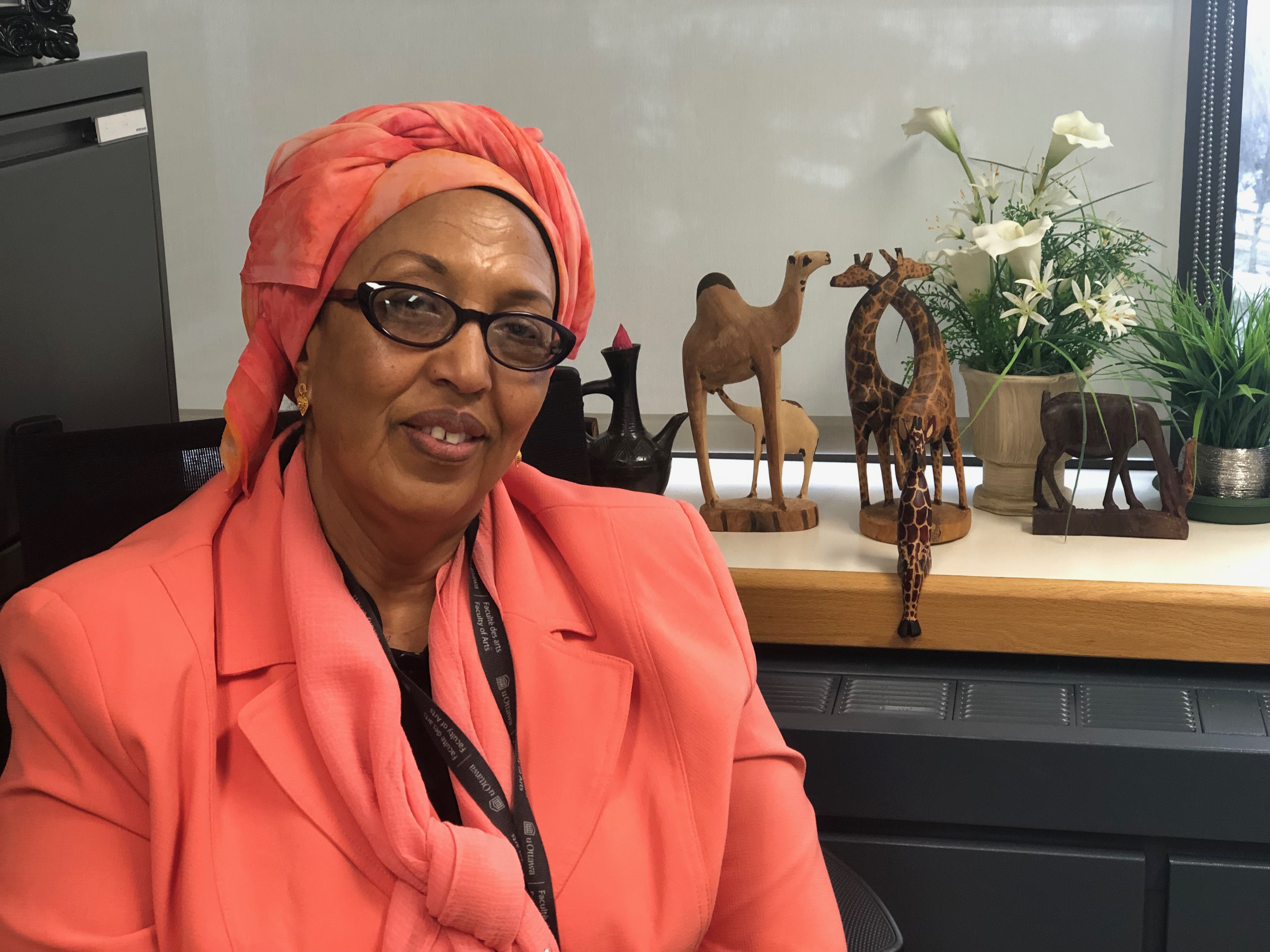
Nimo Bokore had to leave her home country, Ethiopia, in her early 20s. Photo © Barbara Doro
Nimo Bokore left Ethiopia in her early 20s during Ethiopia’s Civil War. Before leaving, Nimo worked as a journalist, covering the 1977- 78 Ethiopian-Somali war from the field. Bokore was in prison for seven months before she was released, but that was not the end of the persecution for her. Right after having her fourth child, Bokore found out that she was still a target for the government.
Knowing she did not have much time before they would come for her again, Bokore left Ethiopia with a baby and three young children and headed to Somalia. Her father was Somali and therefore she was able to find a job and settle there.
She was living Somalia until it became unsafe for her children. She then decided to leave once more. She carried her four children and they sought asylum in Europe. They landed in Italy, where they received support from UNHCR, World Christian Churches and the Vatican.
Life in Canada
Bokore and her children lived in Italy for two years and then she moved to Canada. She tells that one of the things she knew about Canada was the country’s generosity. Once a group of Canadian Aboriginal people sent a contribution to people in Ethiopia. She was familiar with the story of Aboriginals in Canada she was touched by their action.
“I had this Aboriginal people, that were so kind,” says Bokore. “And this is their land and you know, that was taken away from them, but they are still welcoming people.”
Besides the cold, she says that she had a good feeling about Canada. And she chose Ontario because she thought it was the least cold province to live.
Starting a new life was not easy. At some point, she had three jobs, so she could provide for her four children and keep them in school. She worked delivering pizza and waitressing, until she got a job at the YMCA as a trainer. While working there she heard about an opportunity to become and employment consultant, but she needed the Canadian education and that is how she got her college degree.
Once graduated, as an employment consultant she was able to have only one job. And from that point she did not stop. She got her bachelors’ degree in social work and her masters in mental health. After all she had gone through, while dealing with her own traumas and helping her children to deal with theirs, she wanted to learn more about it.
“The help I got was from the books I was, reading from what the teachers were teaching,” says Bokore. “I always talk about cost me over 40 thousand dollars in student loans to heal myself and understand myself.”
While figuring out how the trauma process worked she realized she needed to do research about it. She then started her PhD in social work and a graduate diploma in neuroscience.
Bokore then became an expert in trauma and therapies for refugees and was hired as a faculty member at Carleton University in 2016.
She already knew James Milner, the project director for the Local Engagement Refugee Research Network, and when she was invited to join LERRN as a co-investigator she had no doubt she wanted to be part of the project.
“When I was doing my own research for my PhD, I could not find anybody actually asking refugees how things were and people were telling how refugees felt, but nobody was asking them what they felt.” Bokore concludes saying that what she likes about LERRN is that “it is from the grounds up.”